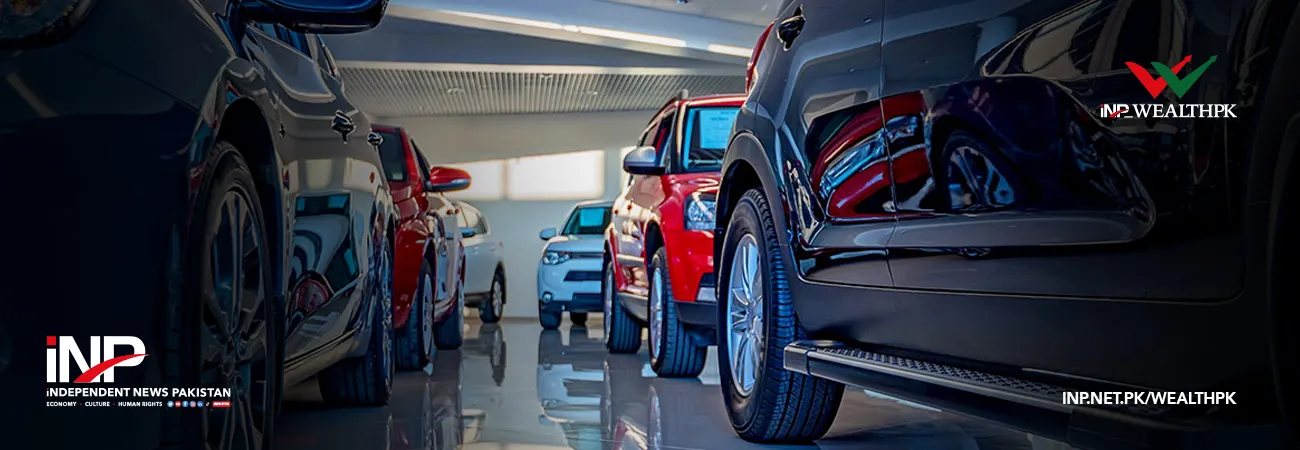INP-WealthPk
Arooj Zulfiqar
In a welcome turn of events for the Pakistani automotive industry, September saw a 10% surge in car sales compared to the preceding month. The Pakistan Automotive Manufacturers Association (PAMA) reported that a total of 8,312 units were sold in September, indicating positive momentum following an even more impressive 49% increase in August. However, the year-on-year statistics reveal a substantial 26% decline in car sales, exposing the ongoing challenges in the local automobile sector. “The month-to-month improvement in car sales is a ray of hope for the industry,” said Abdul Waheed Khan, a representative of PAMA. “As Pakistan’s automotive industry experiences a 10% monthly increase in car sales for September, there is cause for cautious optimism. The sector’s month-to-month growth, attributed to improved access to raw materials and relaxed import regulations, signifies a short-term revival. However, it’s essential to scrutinise the broader context, especially the 26% year-on-year decline in sales, which casts a shadow over the industry’s future,” he said.
Waheed said: “The increase in car sales is driven by a better environment for automotive manufacturers, including easier access to raw materials and simplified import regulations for Completely Knocked Down (CKD) kits. Letters of Credit play a crucial role in facilitating imports. This change in dynamics, while positive, should be understood within the framework of a larger set of challenges.” “High car prices, costly auto financing, and an increase in taxes have collectively hampered long-term growth in the sector. These factors represent substantial barriers to consumer access and demand.” The PAMA representative said the ever-increasing prices of cars had significantly strained the consumers’ budgets. “Escalating production costs, coupled with inflationary pressures, have pushed car prices to levels that are simply beyond the reach of many potential buyers. This, in turn, led to a shrinking customer base and dampened overall demand in the market.”
“While the monthly increase in car sales is a welcome development, the challenges within Pakistan’s automotive industry persist. To address these challenges, policymakers, manufacturers, and financial institutions must collaborate to create an environment that fosters affordability and accessibility,” he said. Waheed said: “The issues of high prices, expensive auto financing, and economic factors are systemic and require thoughtful, sustained efforts to address. The road to recovery and growth in this sector will depend on a multi-pronged approach, including industry collaboration, policy adjustments, and a keen focus on consumer needs. Careful monitoring and adaptation are essential to navigate these complex dynamics successfully,” he underscored.
Credit: INP-WealthPk













